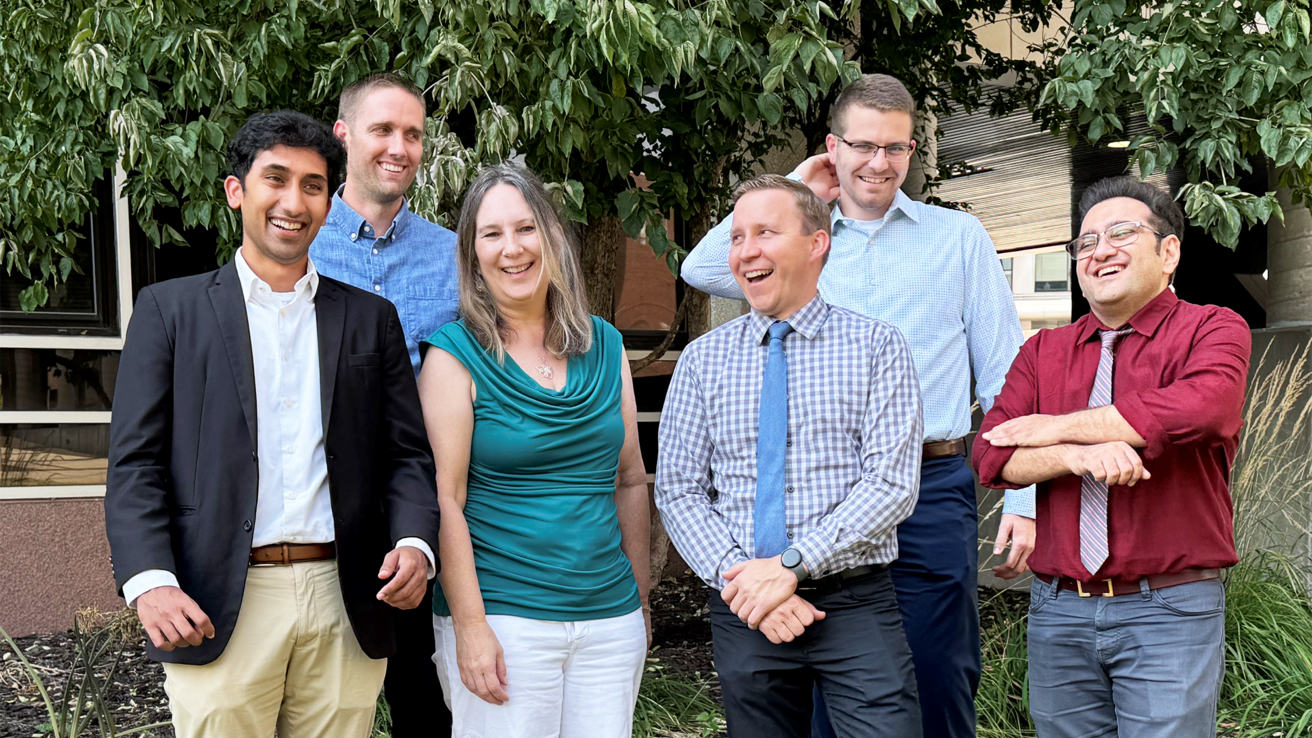Main navigation
Bennion Lab
Hearing loss impacts the lives of essentially every person, whether directly as a patient or indirectly as a family member or friend of someone who is hard-of-hearing. One in every three older adults suffers from some form of hearing loss, which arises from conditions such as presbycusis (age-related hearing loss), temporary or permanent noise-induced hearing loss, sudden sensorineural hearing loss, or various genetic forms of hearing loss in which impairment begins at much earlier life stages. For others at various life stages, there are a multitude of causes of conductive hearing loss, only some of which are surgically correctable. Recent work has uncovered a profound link between hearing loss and cognitive decline, with hearing loss having been identified as the leading modifiable risk factor for dementia.
As a surgeon-scientist in otolaryngology, my primary scientific motivation is to discover and innovate in ways that will meaningfully improve the lives of our patients with as few barriers to clinical implementation as possible. Hearing loss impacts the lives of essentially every person, whether directly as a patient or indirectly as a family member or friend of someone who is hard-of-hearing. One in every three older adults suffers from some form of hearing loss, which arises from conditions such as presbycusis (age-related hearing loss), temporary or permanent noise-induced hearing loss, sudden sensorineural hearing loss, or various genetic forms of hearing loss in which impairment begins at much earlier life stages. For others at various life stages, there are a multitude of causes of conductive hearing loss, only some of which are surgically correctable. Recent work has uncovered a profound link between hearing loss and cognitive decline, with hearing loss having been identified as the leading modifiable risk factor for dementia. Tinnitus and vertigo often accompany poor hearing among a subset of these patients, creating additional adversity for an already disadvantaged group. Another group of patients suffer from Ménière’s disease – a syndrome involving vestibulocochlear system that results in recurrent attacks of disabling vertigo, fluctuating hearing loss, and bothersome tinnitus – which afflicts as many as 1 in every 200 adults. Beyond the significant burden of symptoms faced by individuals, economic costs to the medical system are significant, as high as ~$5,000 annually per person.
Despite the stifling burden made up of hearing loss and related auditory disorders in our society, there are currently no FDA approved medical therapies to treat or prevent auditory disorders including hearing loss and vertigo among adults. Hearing amplification by prescription or over-the-counter hearing aids provides remarkable benefit during the early stages of hearing loss, but the out-of-pocket cost can be prohibitive for many, and at more advanced stages, this amplification is unable to overcome the deficits in patients’ ability to discriminate speech. Surgical implantation of a cochlear electrode array is an option for many with end-stage sensorineural hearing loss, and while providing a great deal of benefit to appropriately selected patients, this option carries operative risk and is not equivalent with natural acoustic hearing even in the best of circumstances. Medical management of Ménière’s disease is fraught with medication intolerance and breakthrough vertigo episodes. More invasive non-surgical and surgical options carry higher risks and have inconsistent evidence to draw conclusions about their beneficial effects. Hence, identification of novel treatments, including via drug repurposing strategies, remains a high priority.
